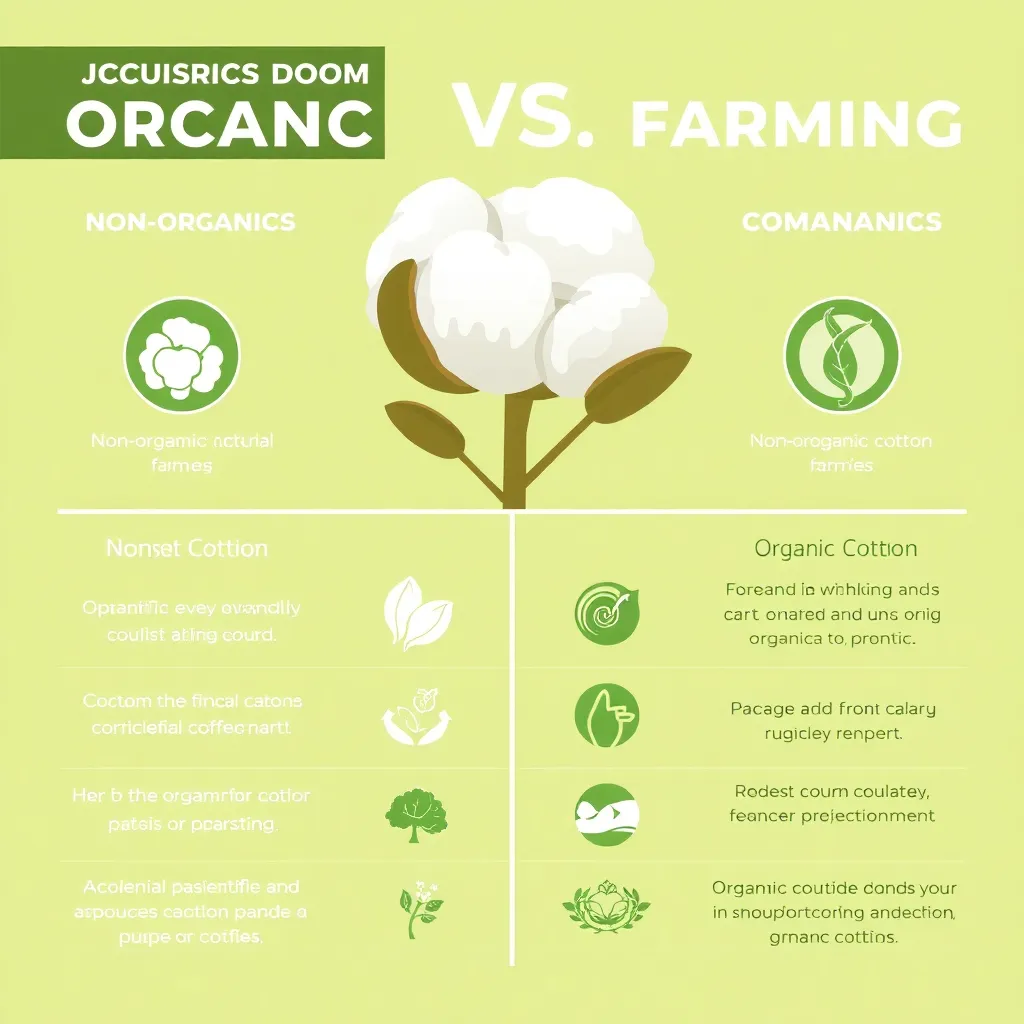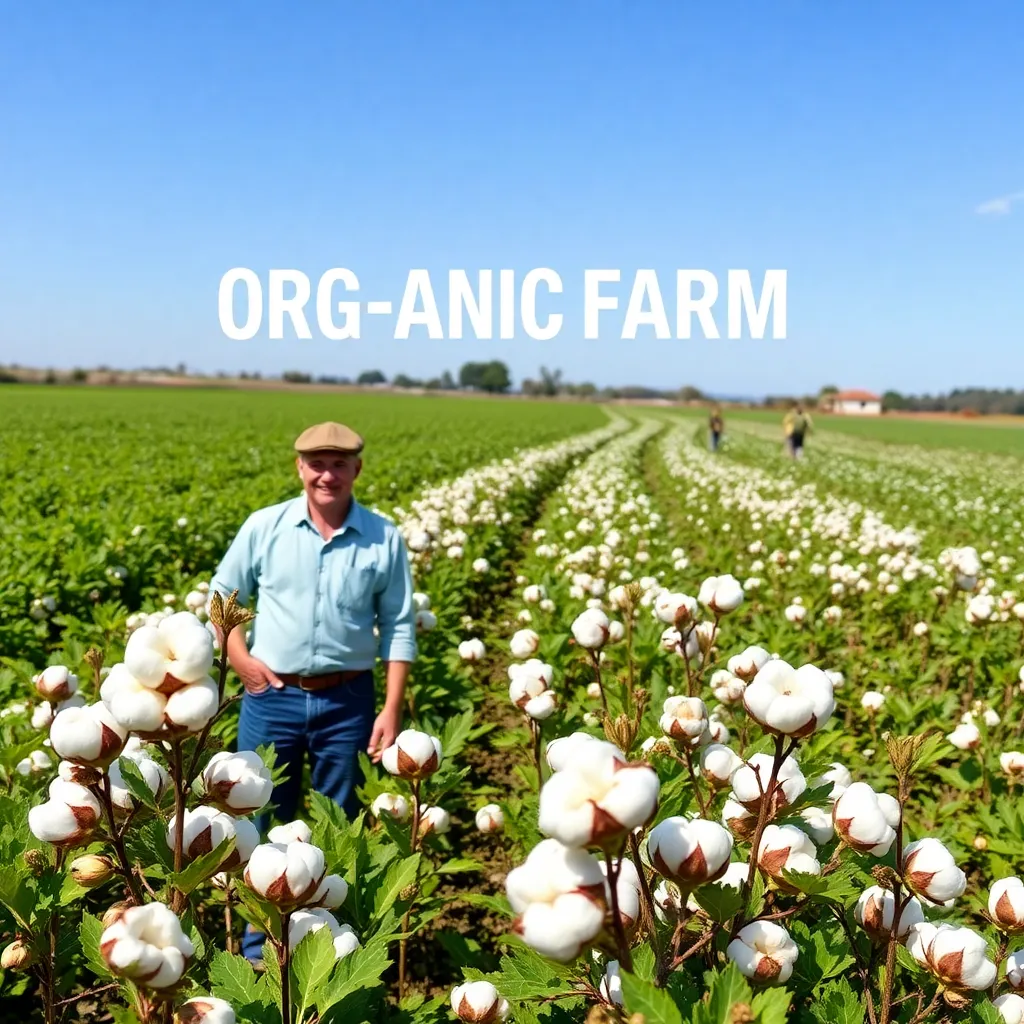Organic vs. Non-Organic Cotton: What’s the Difference for T-Shirt Enthusiasts? [Thumbnail: An image of an organic cotton farm]
When it comes to choosing the perfect t-shirt, many enthusiasts focus on factors like fit, style, and comfort. However, there’s another important consideration that often gets overlooked: the type of cotton used.
Organic and non-organic cotton are two distinct options, each with its own set of benefits and drawbacks. Organic cotton, for instance, is grown without the use of toxic pesticides or synthetic fertilizers, making it a more environmentally friendly option. According to the Organic Trade Association, organic cotton production promotes healthier soil, biodiversity, and better water quality.
On the other hand, non-organic cotton, also known as conventional cotton, relies heavily on chemical pesticides and fertilizers to increase yields and reduce pests. While this method may produce higher yields, it can have devastating environmental and health consequences, including soil degradation, water pollution, and harm to wildlife and human health.
Understanding the differences between organic and non-organic cotton can help t-shirt enthusiasts make informed decisions about their purchases. By choosing organic cotton t-shirts, consumers can support more sustainable and environmentally friendly farming practices, while also enjoying the benefits of a softer, gentler fabric against their skin.
Non-Organic Cotton: The Conventional Choice
The widespread adoption of non-organic cotton has led to significant environmental degradation. The heavy use of synthetic fertilizers and pesticides can contaminate soil, air, and water, posing a threat to biodiversity and ecosystem health. According to the World Wildlife Fund (WWF), cotton farming accounts for 2.5% of global pesticide use, despite occupying only 2.4% of arable land. This excessive chemical use can also harm beneficial insects and pollinators, such as bees.
In addition to environmental concerns, non-organic cotton farming has been linked to negative health impacts on farmers and their communities. Exposure to toxic pesticides can cause a range of health problems, from skin irritation and respiratory issues to more severe conditions like cancer and neurological damage. The World Health Organization (WHO) estimates that there are approximately 20,000 deaths annually due to pesticide poisoning in developing countries, where cotton farming is often concentrated.
Furthermore, the use of genetically modified seeds in non-organic cotton farming has raised concerns about the long-term effects on soil health and the potential for unintended consequences on the ecosystem. While proponents of genetically modified organisms (GMOs) argue that they increase crop yields and reduce pesticide use, critics argue that the risks and uncertainties outweigh any potential benefits.

Organic Cotton: The Sustainable Alternative
Organic cotton farming offers a more sustainable alternative to conventional cotton production. By avoiding the use of toxic chemicals, genetically modified seeds, and synthetic fertilizers, organic cotton promotes a healthier environment and reduces the risk of water pollution. According to the United States Environmental Protection Agency (EPA), organic cotton farming helps to maintain soil health, conserve biodiversity, and support ecosystem balance.
The use of natural and biodegradable materials in organic cotton farming also contributes to a reduced environmental footprint. This approach eliminates the need for synthetic pesticides and fertilizers, which can harm wildlife and contaminate soil and water. Instead, organic cotton farmers rely on natural methods to control pests and diseases, such as introducing beneficial insects or using crop rotation techniques.
By choosing organic cotton products, consumers can support sustainable agriculture and reduce their own environmental impact. Organic cotton farming not only benefits the environment but also promotes fair labor practices and improves the livelihoods of farmers and their communities. As consumers become more aware of the environmental and social implications of their purchasing decisions, the demand for organic cotton products is likely to increase.

The Impact on T-Shirts and the Environment
For t-shirt enthusiasts, opting for organic cotton tees can make a substantial difference in the environmental footprint of their wardrobe. By choosing organic cotton, they can contribute to reducing the amount of pollutants released into the air and water, which is a significant step towards a more sustainable future.
Organic cotton production is not only better for the environment, but it also has benefits for the wearer. Organic cotton t-shirts are often softer, breathable, and gentler on the skin, making them a great choice for those who prioritize comfort and durability.
According to the Organic Trade Association, organic cotton farming uses 71% less water and 62% less energy compared to conventional cotton farming methods. By supporting organic cotton production, t-shirt enthusiasts can help promote more sustainable farming practices and reduce their carbon footprint.
Overall, choosing organic cotton t-shirts is a simple yet effective way for t-shirt enthusiasts to make a positive impact on the environment while also enjoying the benefits of a high-quality, comfortable, and sustainable garment.
Conclusion: Making an Informed Choice
The debate between non-organic and organic cotton has been ongoing for quite some time, with each having its own set of advantages and disadvantages. Non-organic cotton, for instance, is often cheaper and more widely available, making it a popular choice among manufacturers and consumers alike. However, its production process involves the use of toxic pesticides and synthetic fertilizers, which can have devastating effects on the environment and human health.
On the other hand, organic cotton is grown without the use of these harmful chemicals, resulting in a more sustainable and environmentally friendly option. According to the Organic Trade Association, organic cotton production promotes soil health, biodiversity, and efficient water use, making it a more responsible choice for those who care about the planet.
By choosing organic cotton t-shirts, consumers can make a significant impact on the fashion industry. As the demand for sustainable and eco-friendly products continues to grow, manufacturers are being forced to rethink their production processes and adopt more environmentally conscious practices. This shift towards sustainability can have a ripple effect, inspiring change throughout the entire supply chain.
Ultimately, the decision to opt for organic cotton t-shirts is not only a fashion statement but also a conscious choice to support a more responsible and eco-conscious fashion industry. By making informed purchasing decisions, consumers can promote positive change and contribute to a more sustainable future for generations to come.
